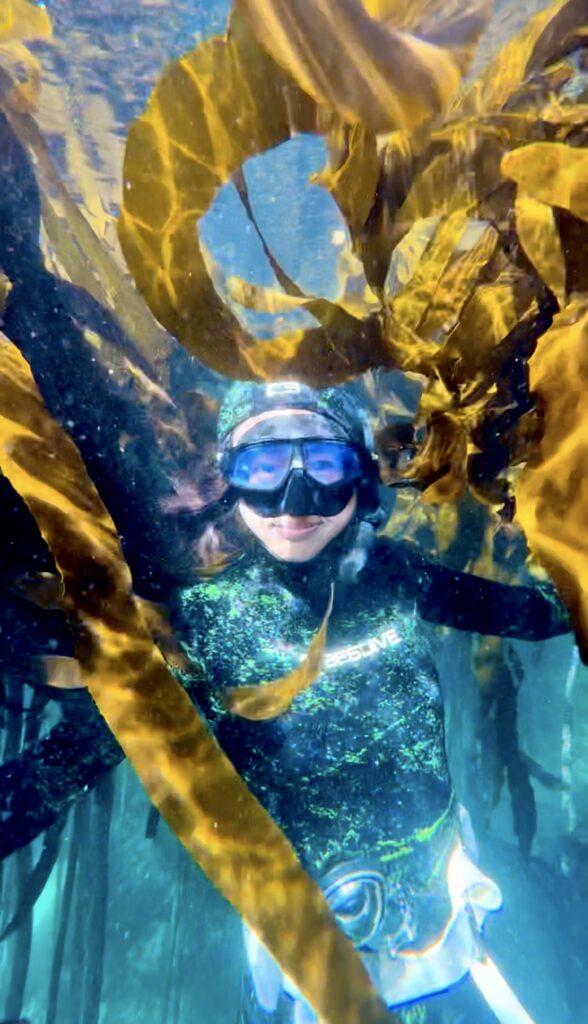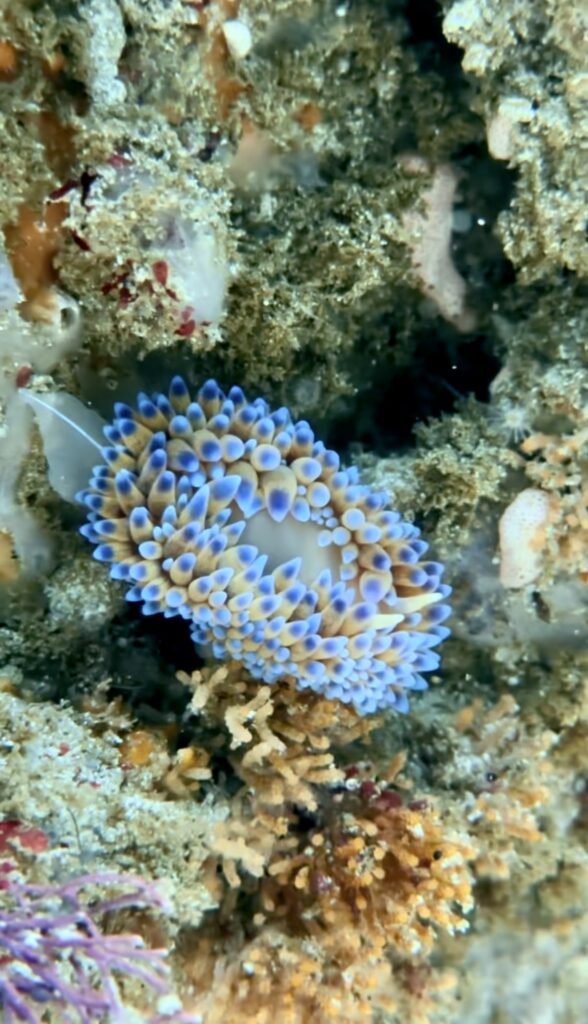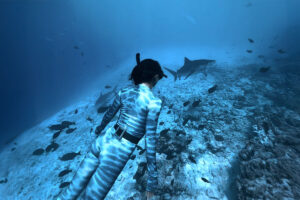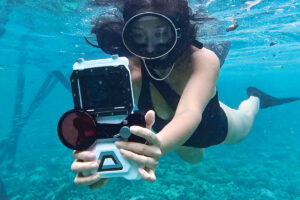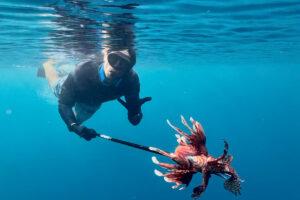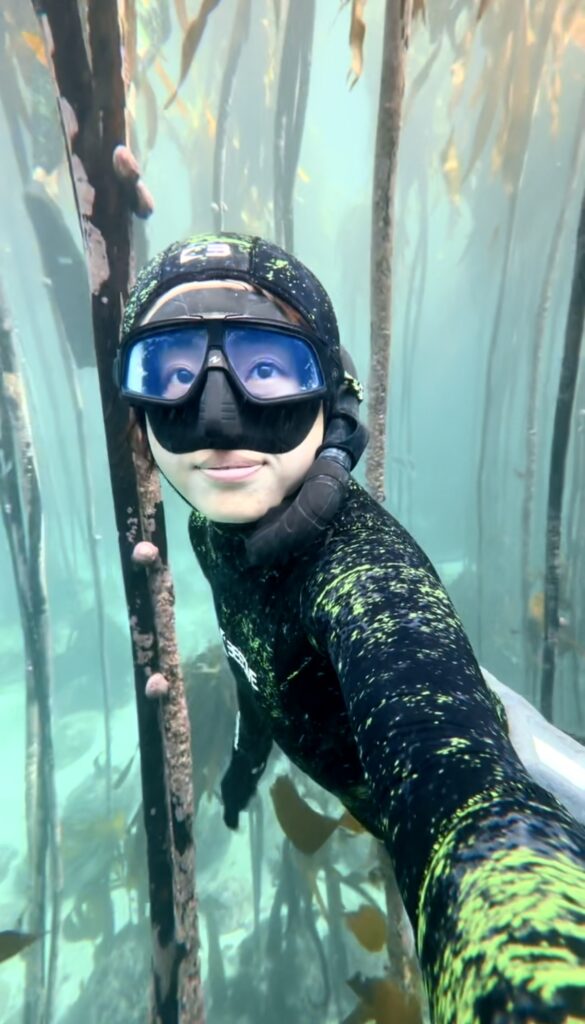
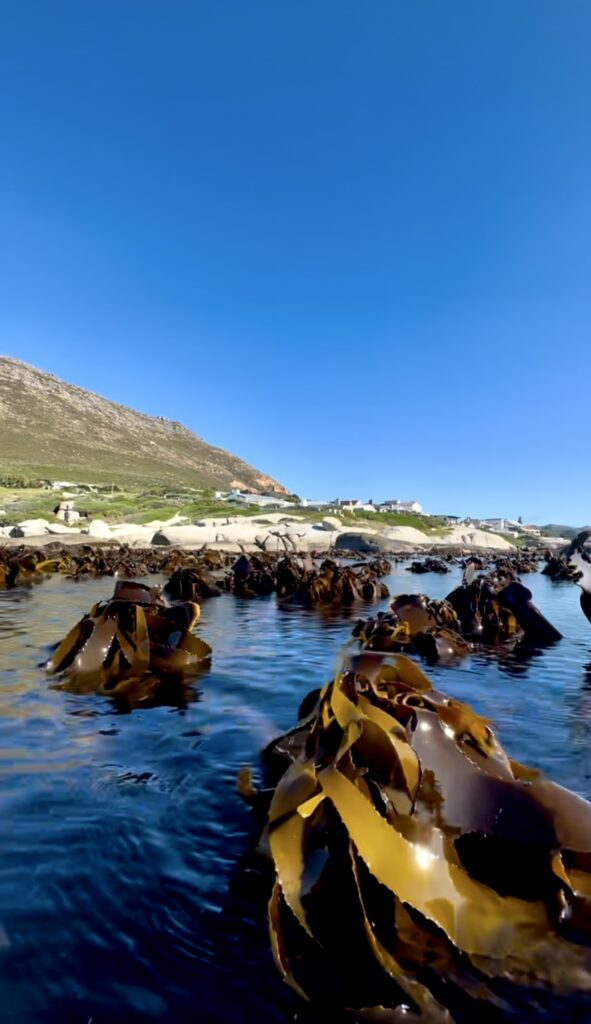
Although the waters surrounding Cape Town may not have the same fame among divers as the Great Barrier Reef or the Bahamas, the local diving community is on the rise. False Bay has even become the backdrop for several award-winning nature documentaries that showcase the extraordinary marine life found here, including the renowned “My Octopus Teacher.”
Last year, we traveled to South Africa and were blown away by the unique underwater experience in Cape Town’s Kelp Forest. Even though the water was cold, it turned out to be one of my favorite freediving adventures yet.
Gears & Safety
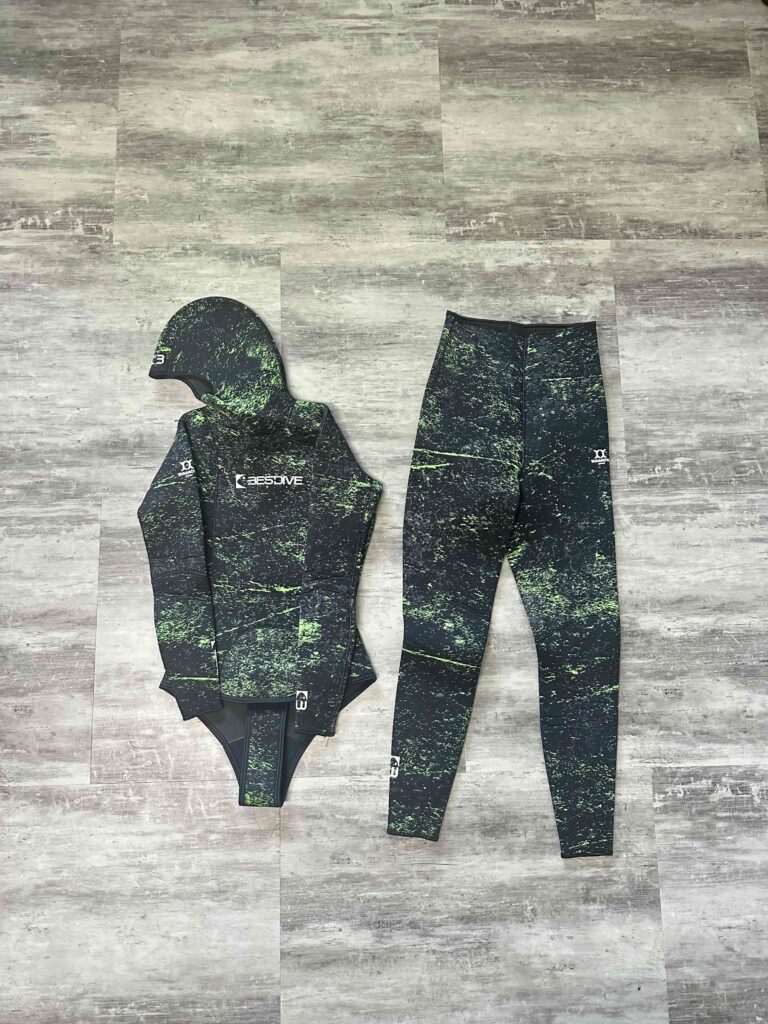
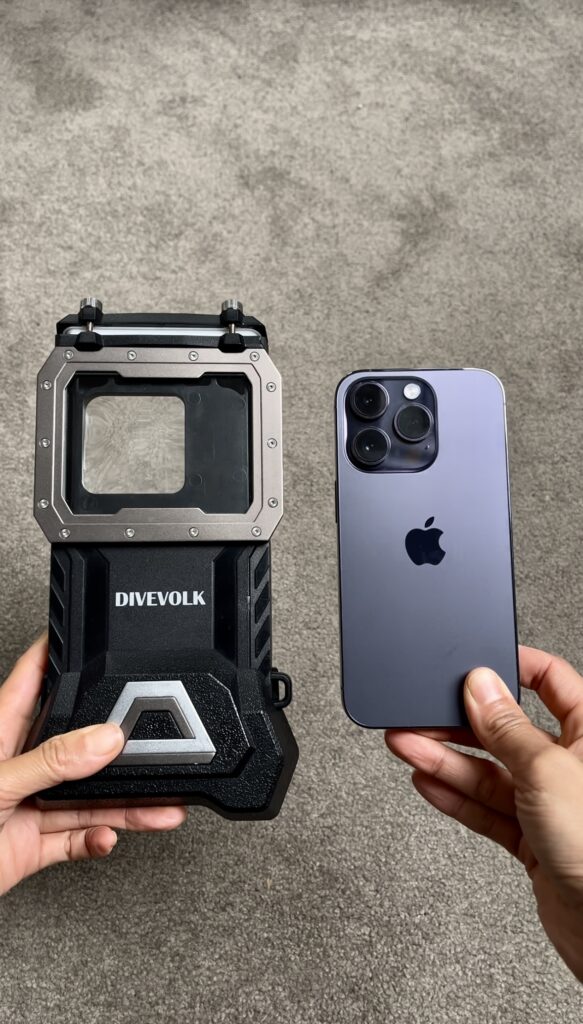
To dive in Cape Town’s cold waters, you’ll need a wetsuit (preferably 5mm), fins, weights, a mask, and a snorkel at the very least. Safety is crucial, so always dive with a buddy. If you’re new to freediving, make sure to go with an experienced diver first or consider taking a course at Cape Town Freediving. They offer expert training and can provide all the necessary rental gear.
During our dives, I used a customized 5mm wetsuit, 3mm nylon gloves, and 3mm nylon socks from Bestdive, which kept me very warm. My fins are from DiveR, and I filmed all my underwater content using my iPhone 14 Pro with DIVEVOLK smartphone housing.
After using the DIVEVOLK smartphone housing for almost 3 years on my diving trips around the world, I’ve written an in-depth review of this smartphone housing, click here to read the full review. If you want to buy a DIVEVOLK smartphone housing, you can click here to see the DIVEVOLK exclusive discount code and some of the amazing freebies on Freedive The World.
If you want to know more about my freediving gear, click here.
Where to freedive and snorkeling in Cape Town
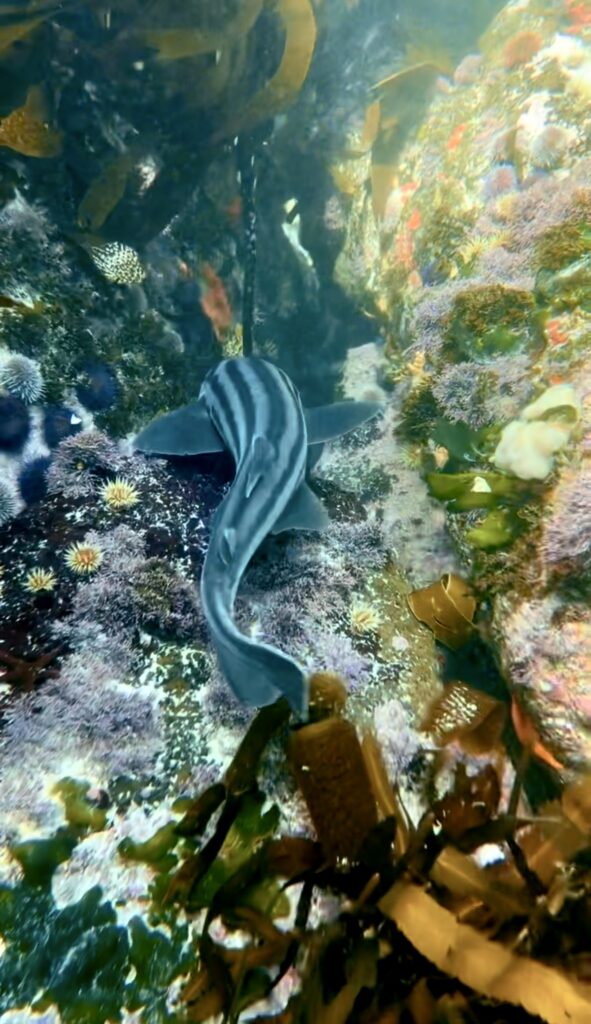
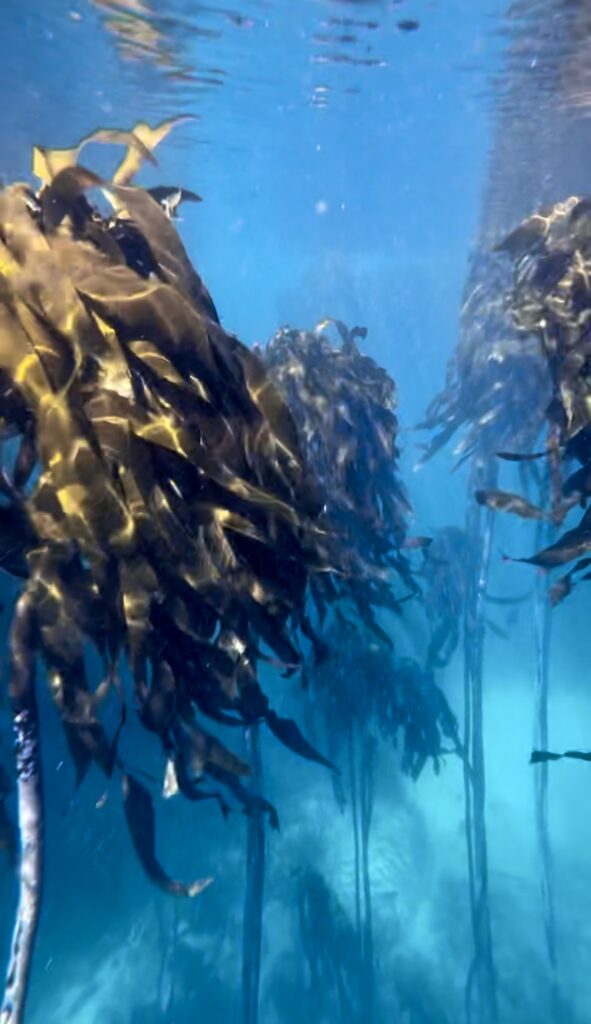
Cape Town offers a variety of amazing freediving spots, each with its own unique scenery. The False Bay dive sites are best explored during winter, while the Atlantic dive sites are clearest on a summer day following a strong South Easter wind. False Bay is notably warmer, reaching up to 20 degrees in summer, whereas Atlantic temperatures can drop to a chilly 7 degrees, even in summer.
In False Bay, you can encounter a variety of marine life such as anemones, starfish, pyjama sharks, nudibranchs, puffadder shysharks, jellyfish, and if you’re lucky, an octopus! The colder Atlantic side may be less popular, but it offers the chance to see seals, cuttlefish, jellyfish, and many hottentot fish.
Each diver has their own favorite spots and hidden gems. Here are a few sites we’ve been to that are easily accessible from the shore. I definitely recommend visiting them:
1. Castle Rock
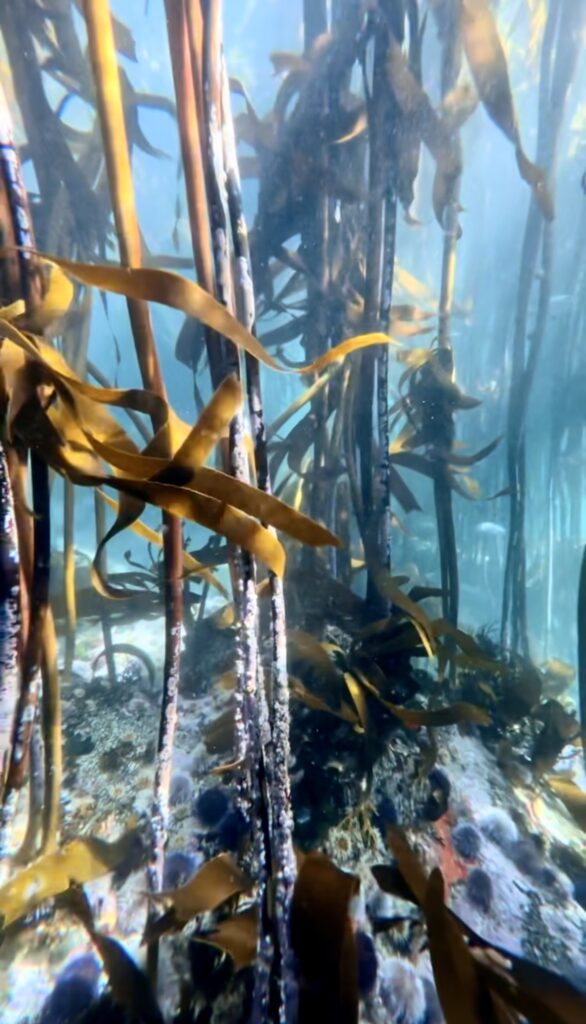

This is my favorite dive spot in Cape Town. Park at Miller’s Point and enter at the slipway, walking down from the hill a bit. Since it’s a no-take zone, the area is full of life, including rare fish like the Galjoen and Red Steenbras, as well as spotted gully sharks. The rock walls are adorned with vibrant sea fans, nudibranchs, soft corals, and sea stars.
2. Windmill Beach
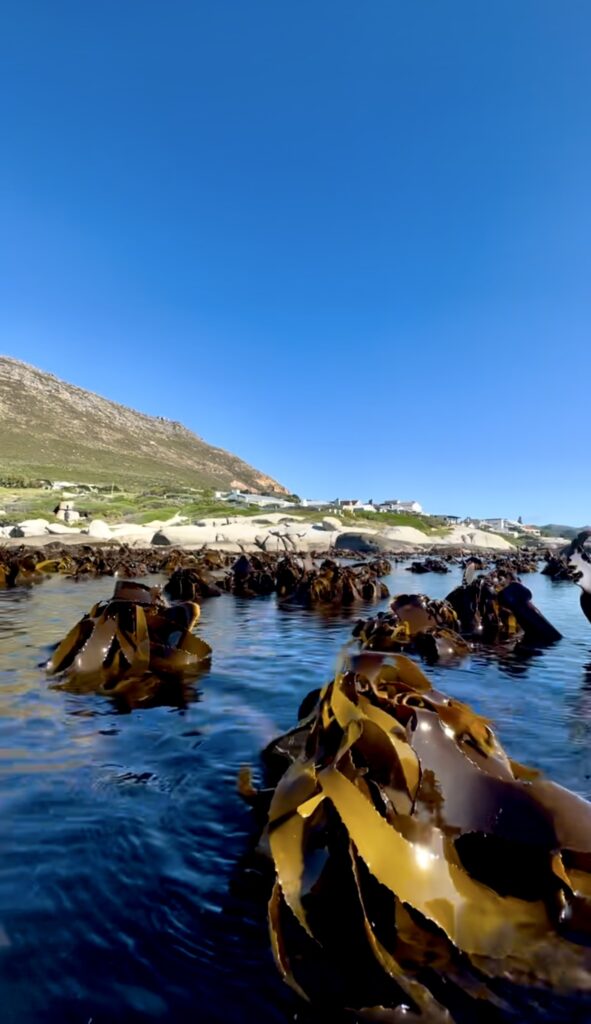
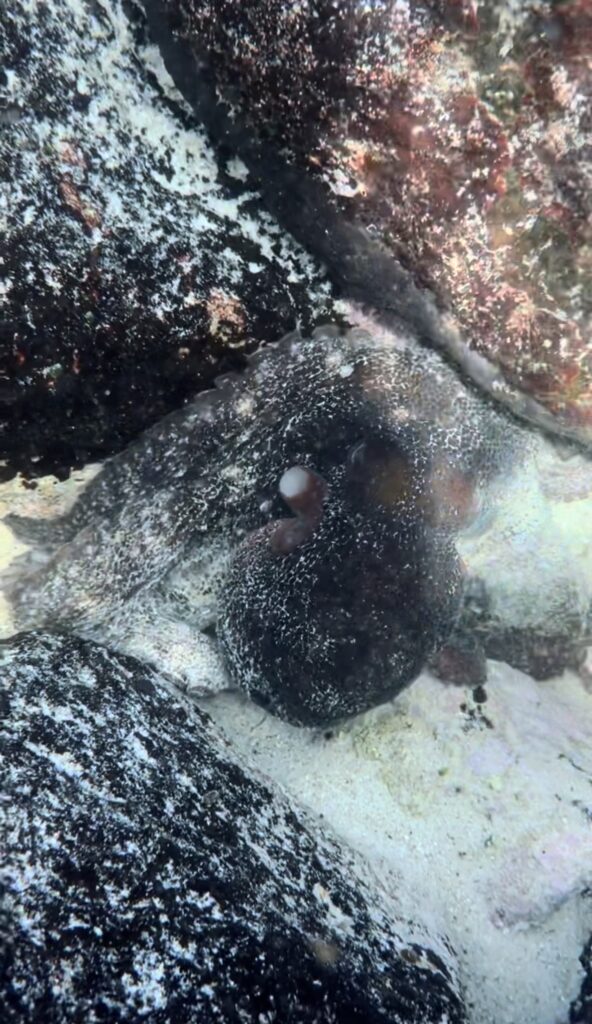
Windmill Beach is perfect for beginner divers. It offers an easy shore entry and is located in a sheltered bay, which leads to a rich diversity of marine life. On one of our dives, we spotted two giant octopuses.
To find Windmill Beach, head towards Boulder’s Beach, but make a right onto Links Crescent just before you get there. There’s a cozy parking spot at the bottom of the road, or you can line up along the street. Nestled within the Boulder’s TMNP MPA (Table Mountain National Park Marine Protected Area), Windmill Beach is a protected no-take zone, preserving its vibrant marine life.
3. Boulders Beach
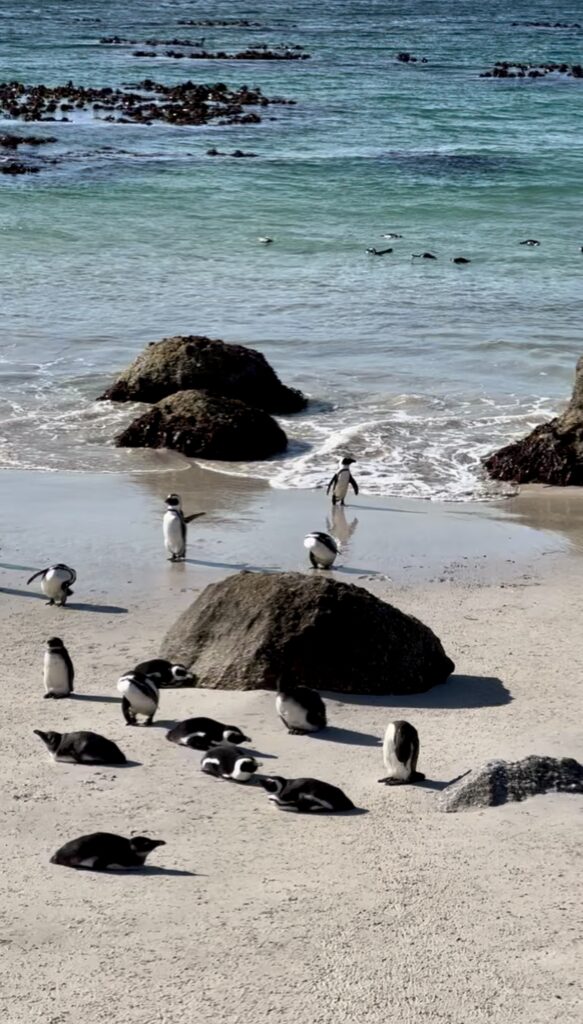
Boulders Beach is a top tourist attraction in Cape Town, known for its wild African penguins.
If you’re up for some freediving, Boulders Beach is a great spot! Unlike rocky dive sites, it’s sandy, so marine life might be limited. Instead, you’ll see penguins swimming swiftly past you in the water or waddling alongside you on the beach. As part of the Boulders TMNP Marine Protected Area, it’s a no-take zone, preserving its natural beauty.
To visit Boulders Beach, you’ll need to pay a small entrance fee.
Freedive in Cape Town’s Atlantic dive sites
I didn’t get the chance to dive in the Atlantic sites during my stay in Cape Town because we ran out of time. However, I’ve heard from other divers about amazing spots like the Antipolis wreck and Sandy Cove at Cosy Bay. While diving there, you can enjoy stunning views of Lion’s Head and the 12 Apostles. This is definitely a reason for me to return someday.
If you’re new to freediving or looking for an amazing guided tour, I highly recommend Cape Town Freediving. We joined them for two trips and had a fantastic time.
If you’ve already dived at any of these sites, let me know how it went! I’d love to hear your thoughts!
